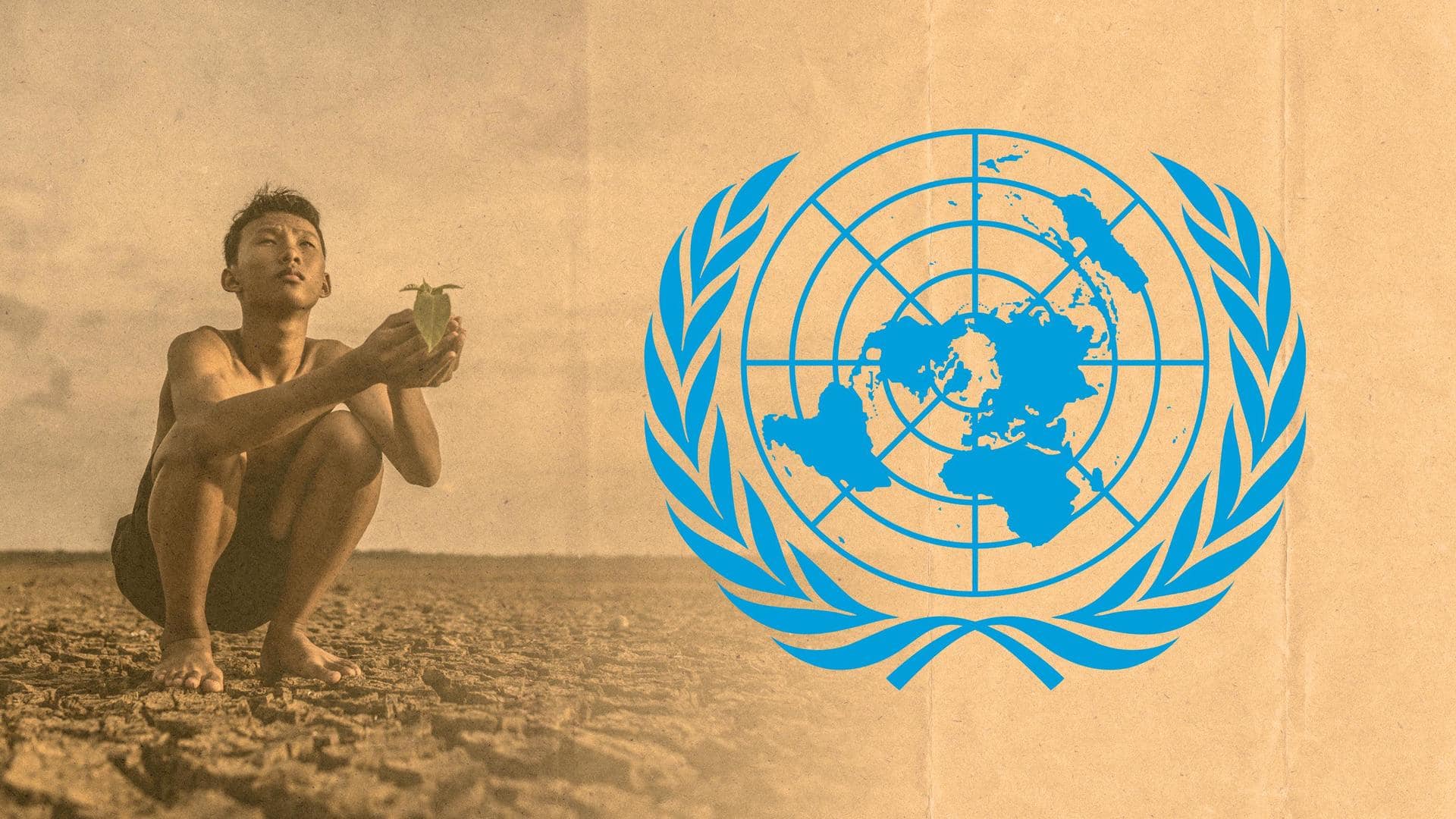
Hottest week recorded, UN says climate change 'out of control'
What's the story
With the rising global temperatures and unprecedented changes in weather conditions, climate change has become a serious (and burgeoning) threat to the world. Recently, the United Nations (UN) analyzed unofficial data which showcased that average world temperatures in the last seven days to Wednesday made for the "hottest week" on record. UN secretary general António Guterres says, "Climate change is out of control."
Bytes
Tuesday was the world's hottest day on record
The world temperature records broke on Monday and Tuesday with the average global air temperature calculated as 17.01 degrees Celsius (62.6 degrees Fahrenheit) and 17.18 degrees Celsius (62.9 degrees Fahrenheit) respectively. With that, Tuesday was the world's hottest day on record and experts believe that it could be broken again very soon. Before this, the hottest day globally was recorded back in 2016!
Information
The week ending Wednesday was 0.04C higher after 44 years
Per the data released by the University of Maine's Climate Reanalyzer, the week ending Wednesday accounted for a rise of 0.04 degrees Celsius in the daily average temperatures, which makes it the highest than any week in 44 years of record.
Forecast
'More days are likely to be warmer than Tuesday': Haustein
The Guardian quoted Dr. Karsten Haustein, a research fellow in atmospheric radiation at Leipzig University, who revealed after studying the data, "The coming days will probably see a small downturn, but since the annual global temperature maximum is at the end of July, more days are likely to be warmer than yesterday." Heat waves have already engulfed various parts of the world.
Information
July will be the 'hottest month ever' in 1,20,000 years
"Chances are that the month of July will be the warmest ever, and with it the hottest month ever ... 'ever' meaning since the Eemian, which is indeed some 120,000 years ago," emphasised Dr. Haustein during the same interview.
Bytes
'I think we are moving into a catastrophic situation': Guterres
With the temperature records broken the last week, Guterres said, "If we persist in delaying key measures that are needed, I think we are moving into a catastrophic situation, as the last two records in temperature demonstrate." Chari Vijayaraghavan, who is a polar explorer and educator, said, "Warming climates might lead to increased risks of diseases like the avian flu spreading in the Antarctic."
Reason
Why is it happening?
Besides climate change, the UN has determined the return of El Niño, a sporadic weather pattern, that was last seen in 2016. "We are in a warm period due to climate change, and combined with El Niño and hot summer conditions, we're seeing record warm surface temperatures being recorded at many locations across the globe," says The US National Oceanic and Atmospheric Administration (NOAA).
El Nino
What is El Niño?
El Niño is a climate condition that is defined as the unusual warming of the surface waters in the eastern Pacific Ocean. Since the warm water spreads further, it creates more heat that is released into the atmosphere, causing the air and weather to stay warm. This can occur every two to seven years on average, however, it can happen yearly as well.